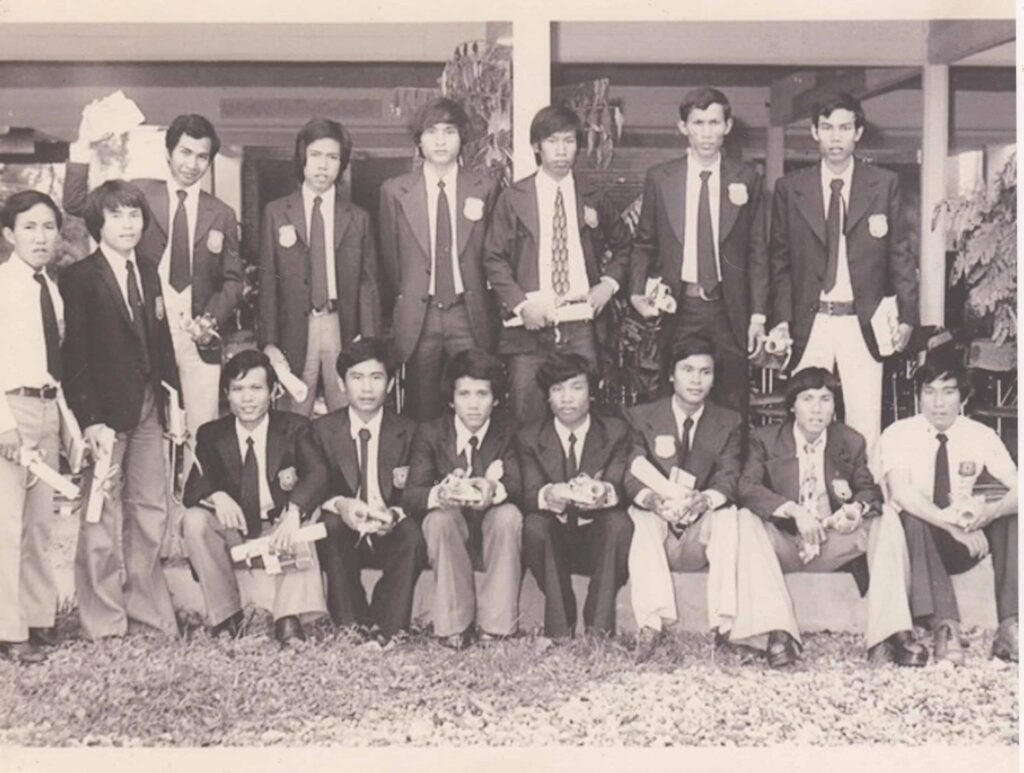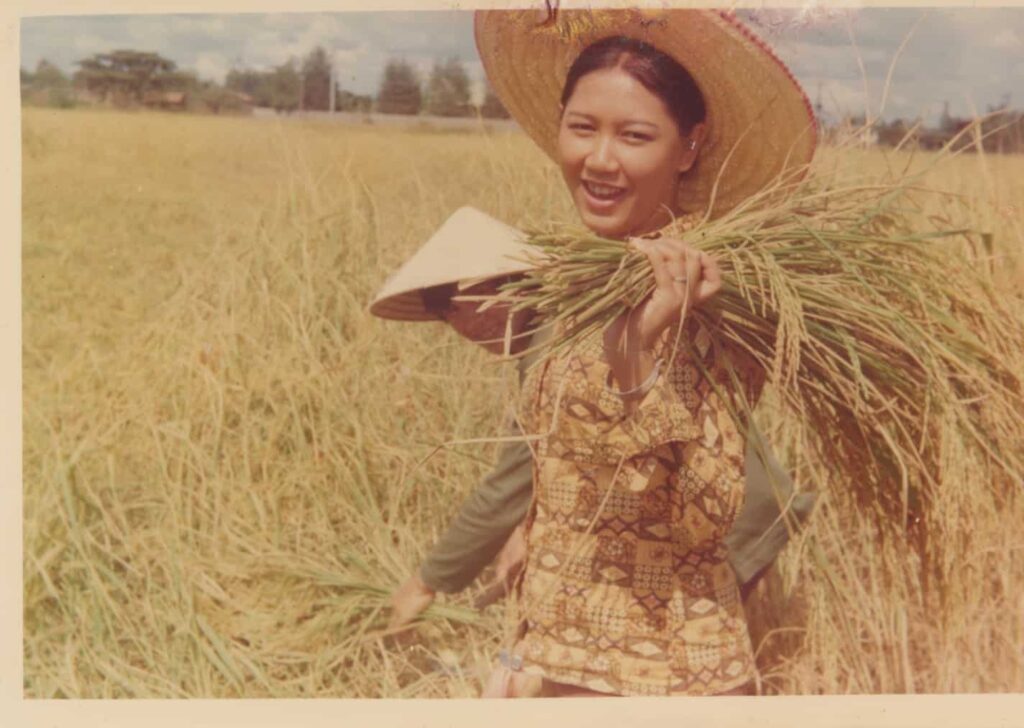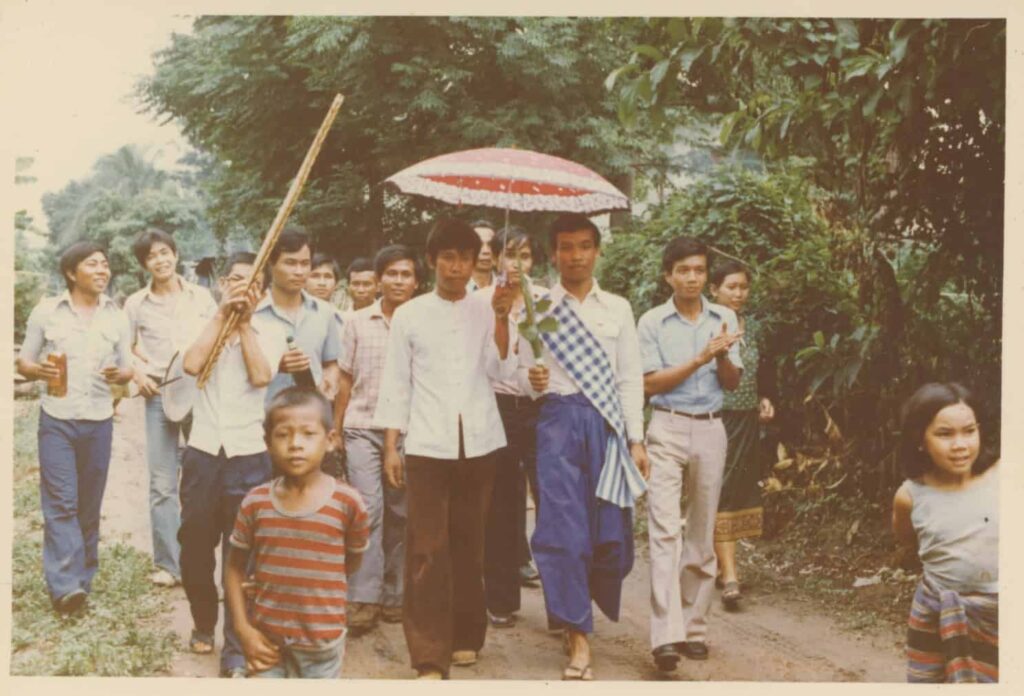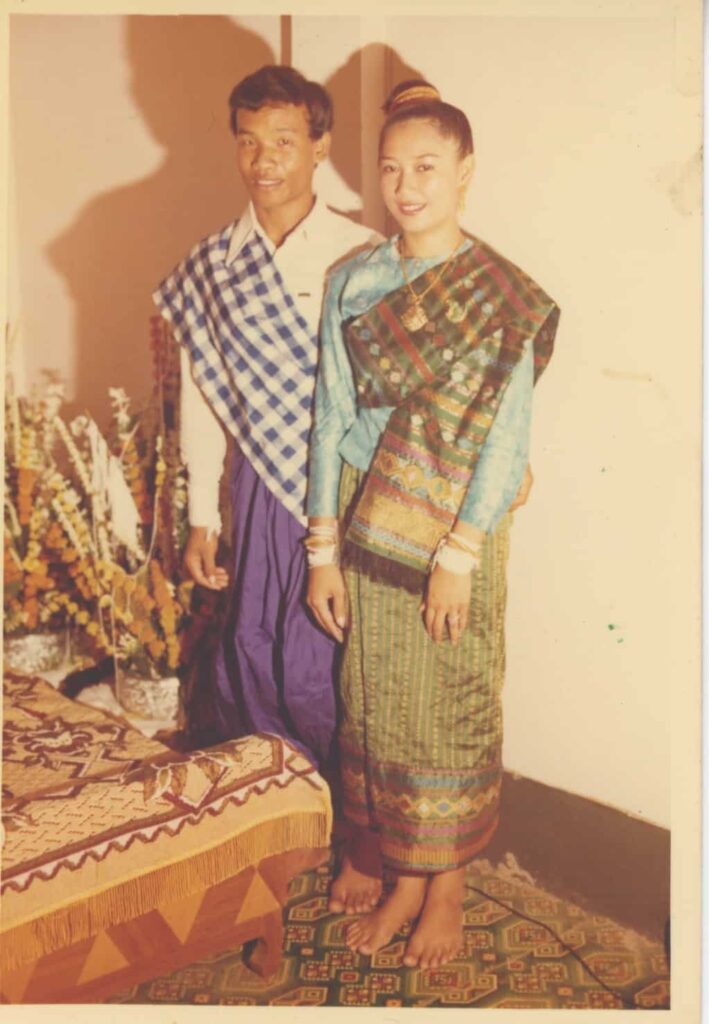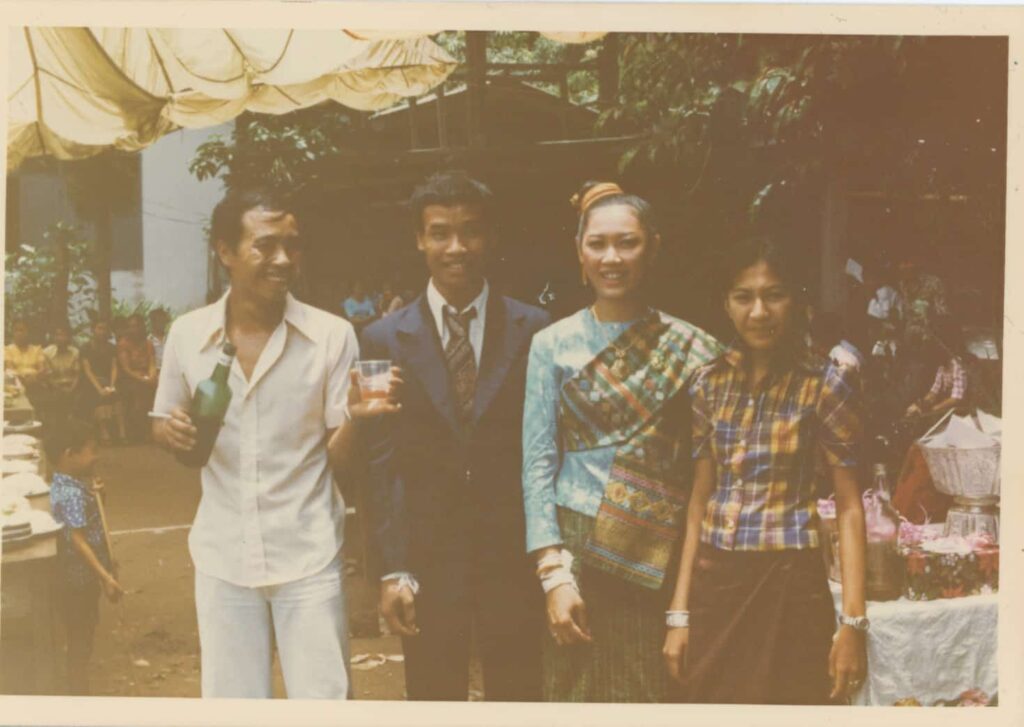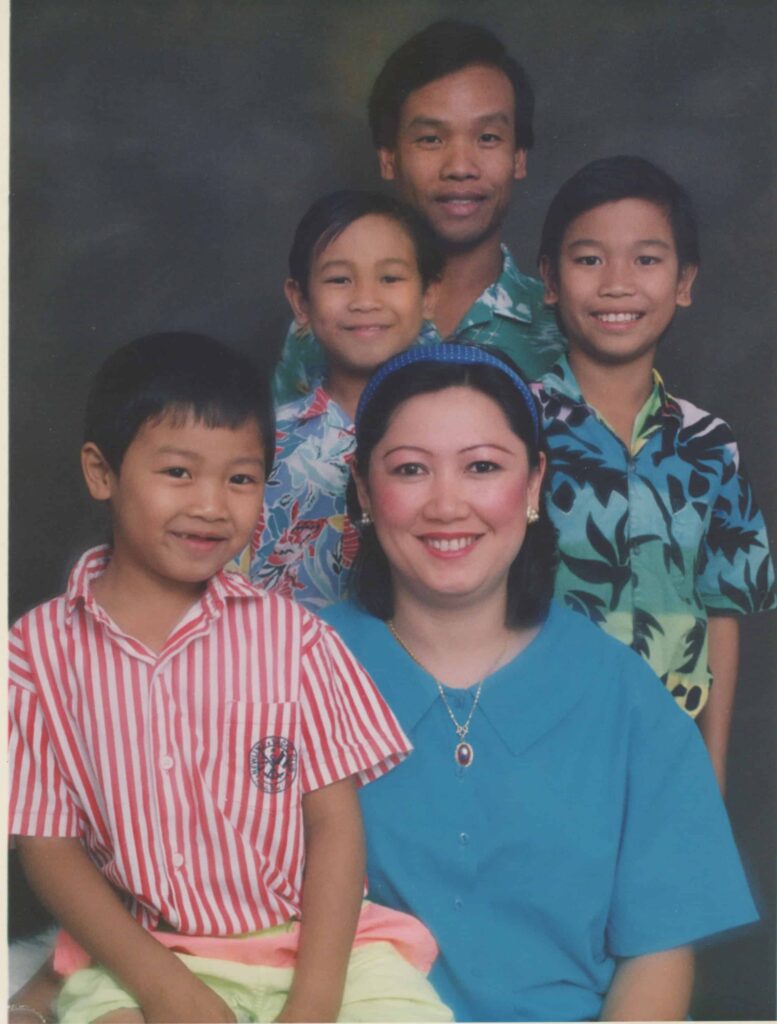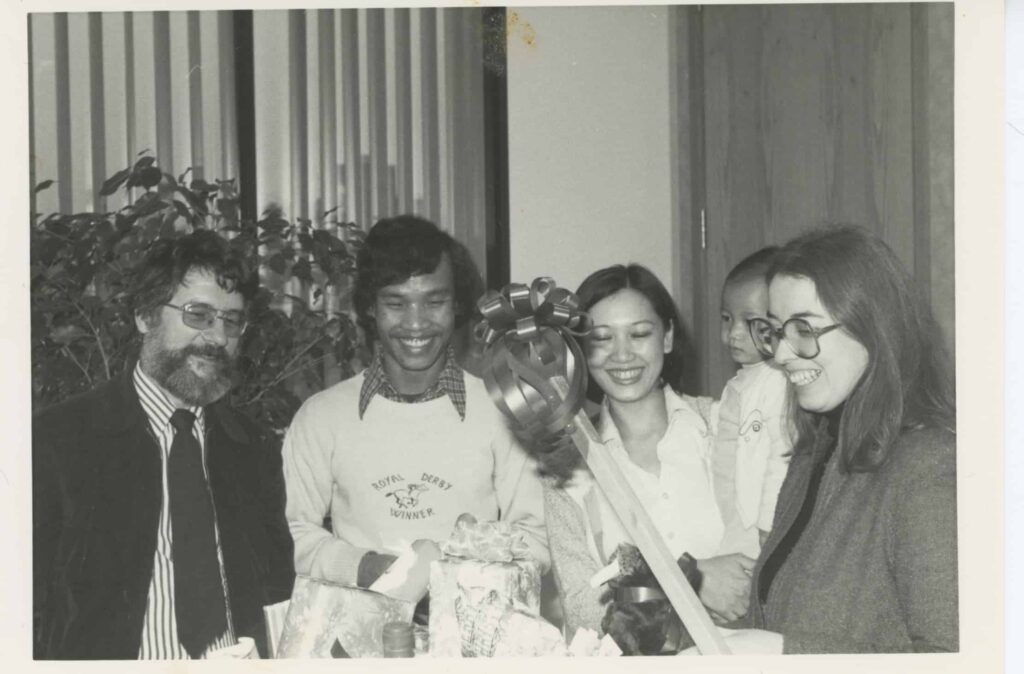HOF056: Mr Noulath Sayaphet / Mrs Vatsana Sayaphet
Noulath Sayaphet was born in the village of Savannakhet Cambodia. At a young age, he and his family moved to Vientienne, the capital of Laos. Later, as a young man, he met his wife Vatsana, a native of Vientienne. They were married in 1977.
Noulath worked for the Agricultural department of the Laotian government. As he and his spouse experienced the economic and political changes in their native country, they feared for their future. With the help of his mother-in-law, they arranged to flee the country. The couple left with Vatsana’s sister in the middle of the night. They told no one about their plans. The three escapees drove a vehicle to the Mekong River. They remained hidden in a small shack in the middle of a rice field overnight. The next day, they obtained a small boat and paddled across the river to Thailand.
Once they arrived on the Thai shores, they walked for more than an hour before finding an isolated house. The occupants welcomed them for the night. The next day, they walked for another 2 hours to the city. They met with the local police who jailed them temporarily for entering the country illegally. They were sent to the Nong Khai refugee camp where they remained for two years.
During their stay in the refugee camp, they applied for refugee status with many countries. They eventually met with Canadian immigration officials who granted them asylum in Canada. They stayed for three months in a refugee camp in Bangkok, and from there, were flown to Edmonton, Alberta, in October 1979.
Noulath and his family were sponsored when they first settled in Canada. He found employment, pursued his studies and obtained a job in the high technology sector. The family was granted Canadian citizenship in 1983. They have remained dedicated to supporting the Laotian-Canadian community in the Ottawa region.
